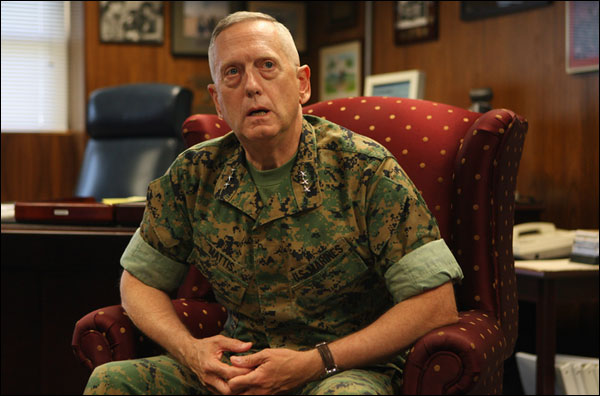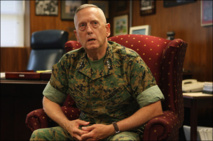"That thinking has not changed," Pentagon spokesman Jeff Davis said. "His commitment to upholding the Geneva convention, the law of armed conflicts, international law and US -- that remains the same."
The army's rules on interrogations apply across the US government, including the Central Intelligence Agency, which had employed waterboarding -- a form of near-drowning -- and other "enhanced interrogation techniques" on terror suspects after the September 11, 2001 attacks.
The methods, widely denounced as torture, were banned in 2009 shortly after then president Barack Obama took office.
In an interview with ABC News on Wednesday, Trump said he would follow the advice of Mattis, a retired Marine Corps general, and CIA director Mike Pompeo on whether to lift the ban.
"But do I feel it works? Absolutely, I feel it works."
On another issue, Davis said the Pentagon had received "no direction or order" to put in place "safe zones" in Syria as Trump insisted he would do in the ABC interview.
"Our focus right now on Syria is what it has always been -- degrading and defeating ISIS," Davis said, using an alternate acronym for the Islamic State group.
Establishment of safe zones for refugees fleeing the fighting in Syria had been considered during the Obama administration.
But the US military warned at the time that protecting them would require a major deployment of aircraft and troops.
-------------------------------------------------------------------------------------------------------------------
The army's rules on interrogations apply across the US government, including the Central Intelligence Agency, which had employed waterboarding -- a form of near-drowning -- and other "enhanced interrogation techniques" on terror suspects after the September 11, 2001 attacks.
The methods, widely denounced as torture, were banned in 2009 shortly after then president Barack Obama took office.
In an interview with ABC News on Wednesday, Trump said he would follow the advice of Mattis, a retired Marine Corps general, and CIA director Mike Pompeo on whether to lift the ban.
"But do I feel it works? Absolutely, I feel it works."
On another issue, Davis said the Pentagon had received "no direction or order" to put in place "safe zones" in Syria as Trump insisted he would do in the ABC interview.
"Our focus right now on Syria is what it has always been -- degrading and defeating ISIS," Davis said, using an alternate acronym for the Islamic State group.
Establishment of safe zones for refugees fleeing the fighting in Syria had been considered during the Obama administration.
But the US military warned at the time that protecting them would require a major deployment of aircraft and troops.
-------------------------------------------------------------------------------------------------------------------









 Home
Home Politics
Politics











